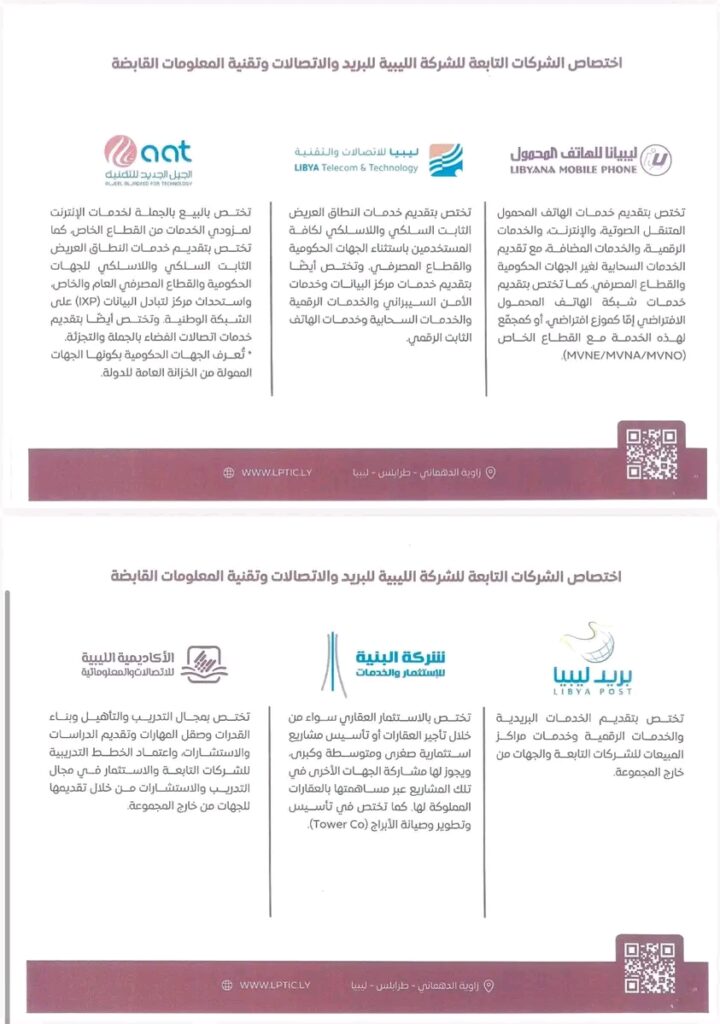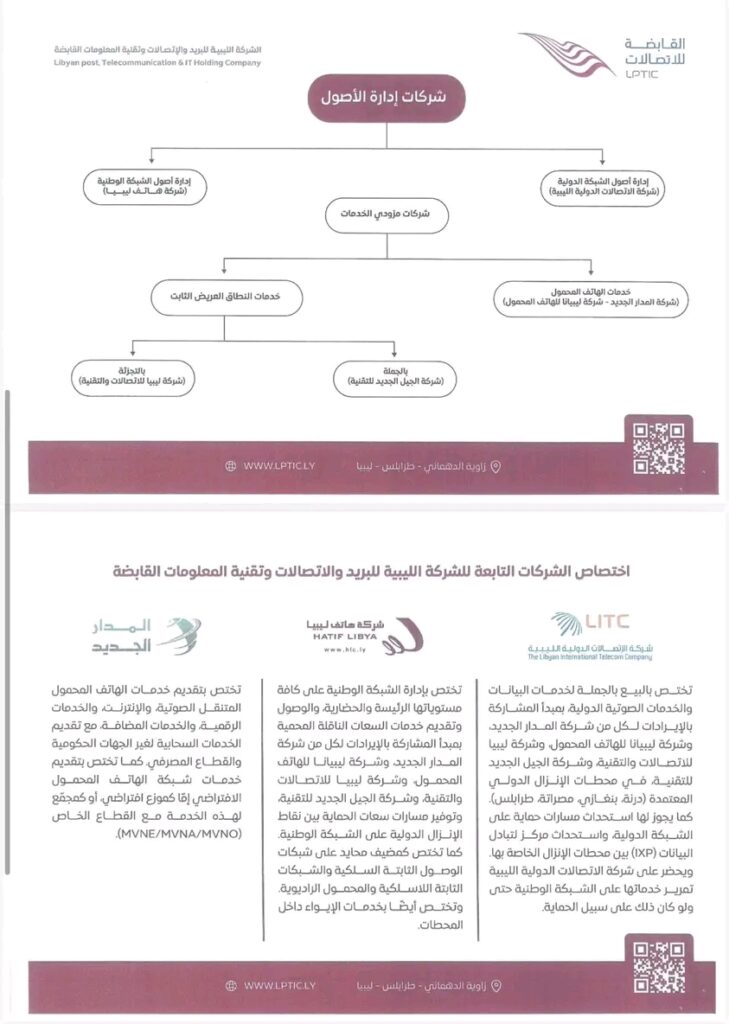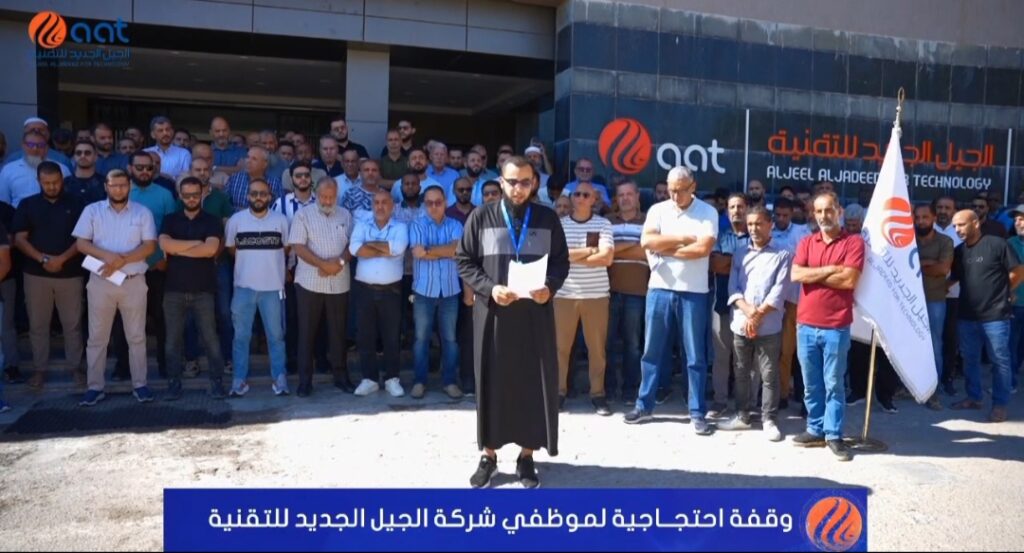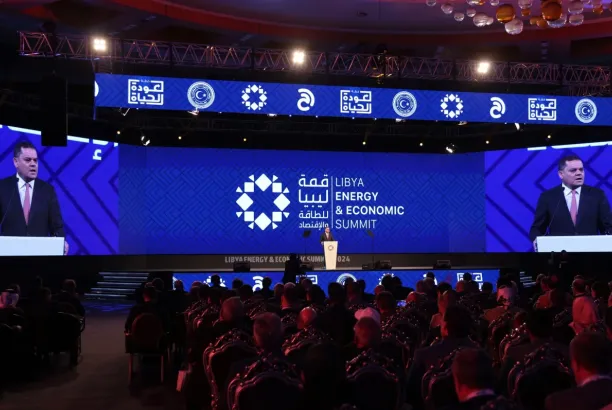Libya Telecom and Technology Company issued a new decision to restructure the mandates of some of its subsidiaries, in a move described as procedural and organizational. However, these decisions quickly sparked mixed reactions—some viewed them as necessary administrative reforms, while others expressed opposition, fearing their impact on operational workflow within the sector.
The board of directors’ decision outlined the specific mandates of the subsidiaries and called for the formation of handover committees between the group’s companies within a maximum period of 90 days. Tasks include inventorying, cataloging, and transferring ownership of equipment, systems, and networks to the relevant companies, evaluating them based on their book value, and registering them as company assets. The decision also allows for agreements to operate the equipment instead of transferring it, under the direct supervision of the owning company.
The decision further requires subsidiaries to prepare a draft project to amend their articles of association regarding their purposes and objectives, including the mandates set by this decision, in preparation for presentation to an extraordinary general assembly.



In the same context, Libyana and Libya Telecom & Technology (LTT) announced the launch of digital fixed-line phone service through the Fixed VoLTE system using the 4G network. According to the agreement, Libyana will stop accepting new line requests starting September 14, 2025, while continuing to serve existing customers until further notice. The traditional fixed-line service will be gradually discontinued starting November 30, 2025, with ADSL service remaining available.
Meanwhile, employees of Al-Madar Al-Jadeed Company issued a statement expressing their rejection of the decision by the Libyan Post, Telecommunications, and Information Technology Company, considering it a significant threat to the telecommunications sector and the country.

The statement said that the telecommunications sector, represented by its key national institutions including Al-Madar Al-Jadeed Company, is being subjected to a systematic and deliberate campaign of plunder and appropriation, part of a broader pattern affecting state institutions for some time, as has become evident to any observer.
The statement added that the current objective is to seize control of the telecommunications infrastructure, undermine its physical and legislative structure, and disrupt its operational activities by imposing an entity that dominates planning, procurement, and operational functions, while monopolizing licenses in pursuit of dubious and illegal financial gains.
Employees of Al-Madar stated that this project, which aims to bypass the sector by establishing a unified network under the sponsorship and control of a specific company—whether public or newly created private, inexperienced, and relying on deceptive methods—lacks the expertise, capacity, and capability to build, operate, or manage it. By all measures, it constitutes a usurpation of competencies, a threat to national security, and a cheap means to enrich corrupt actors at the expense of national institutions, the country, and citizens, with serious security, financial, technical, and service consequences.
The employees emphasized their outright rejection of the project in its entirety and granted the Holding Company a one-week deadline to withdraw its decision and abandon this plan. Should the company proceed, the employees reserve the right to defend the nation’s assets, the security of telecommunications, the quality and continuity of services, before all relevant authorities, as permitted by law and ethics.
In a related development, employees of AlJeel AlJdid for Technology Company organized a protest to express their opposition to Decision No. (25) of 2025, stressing that the decision lacks professionalism and precision, disregards the company’s key strategic role, and would result in the transfer of its assets, particularly the main data and services network, posing a direct threat to operational stability and the continuity of telecommunications services in Libya.

The statement from AlJeel AlJdid for Technology Company employees indicated that the decision was issued by the head of the advisory committee appointed by the Holding Company without consulting the other members. It also lacked financial and legal foundations, with no reliable financial studies or economic assessments clarifying its costs and impact on public funds, and without reviewing legal and regulatory decisions regarding the ownership and operation of the main network.
The statement further explained that the services assigned to New Generation Technology Company, despite their official exclusive importance, are limited and weak in the context of service separation, and do not provide a basis for increasing the company’s resources or ensuring its operational sustainability.
The employees emphasized that government-related services for the company must be granted exclusively through official decisions issued by the government or parliament, which is a national necessity to protect state investments and ensure reliable and secure service delivery.
The statement also criticized granting some private companies unrestricted freedom to establish main networks with dedicated fiber optics and international gateways, allowing them to commercially exploit these fibers, while AlJeel AlJdid for Technology Company, fully state-owned, was not granted similar privileges. Worse, some private companies are selling wholesale internet services with the approval of certain group companies, which the employees described as effectively dismantling the services assigned to AlJeel AlJdid for Technology Company, leading to a halt in its revenues and the collapse of its national role. The statement warned that continuing this policy entrenches monopoly in favor of private entities at the expense of public interest and undermines the strategic objectives of the secure government network project.






